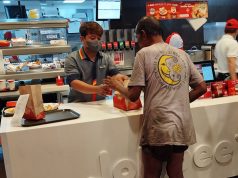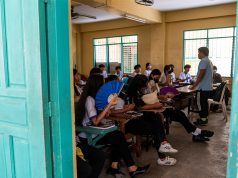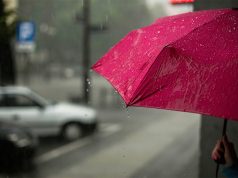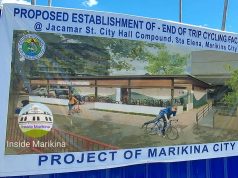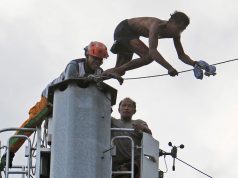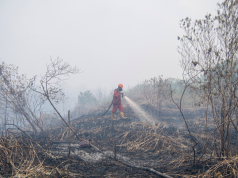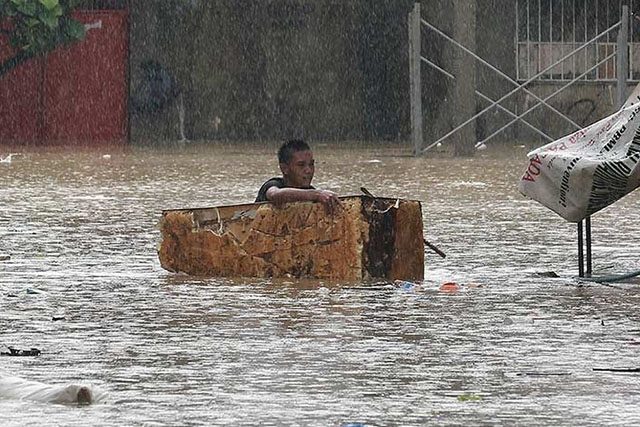
Health concerns over Marikina’s campaign to avoid leptospirosis during the rainy season surfaced after Marikina City Vice Mayor Marion Andres shared a post about the initiative on his Facebook page.
The public official, who is also a doctor of medicine, announced the upcoming initiative named “Kampanya Kontra Lepto” on Monday which aims to eliminate the presence of street rats as precautionary measures amid the onset of La Niña.
Local residents must bring a rat (either dead or alive) to their City Environment Management Office from 9 a.m. to 11 a.m. on October 15 and 16.
“Dun na din susukatin ang inyong mga dalang DAGA para sa inyong cash,” Andres said.
The vice mayor said that residents have the chance to win cash from the two-day initiative.
Daga mo, Palit ng Cash ko!Sali na Marikeño sa ating Kampanya Kontra LeptoSimple lang ang ating mechanics magdala ng…
Posted by Marion Andres on Sunday, October 11, 2020
While the initiative was well-intentioned, some Filipinos expressed their concerns about the upcoming program which they claim could be more detrimental to health.
“I’m not sure how will this work. Could it possibly increase the risk of lepto (leptospirosis) since people would actively seek and get exposed to rats? Plus, magkano lang ba ang doxycycline? Better have a campaign warning the people the risk of wading in floodwater and reminding to wear boots,” a Twitter user wrote.
Others also cited the “cobra effect” which is described as an incident that happens when “an attempted solution results in unintended consequences.”
The term reportedly originated during the British occupation in India, when the colonial government had wanted to eliminate the increasing number of venomous cobras in Delhi at that time.
Their solution was to offer a bounty for every dead cobra captured.
It was initially effective but the number of snakes being offered to them kept on increasing since others had thought of breeding the cobras for the sake of receiving bounty.
The government became aware of the scheme and they stopped giving monetary rewards for the initiative. This resulted in the breeders letting the snakes free or on the loose, causing a surge in the cobra population.
“I know that the intention is good, but have you heard of the Cobra Effect?” a Twitter user wrote in response to Marikina’s program.
Other Filipinos suggested for the city government to use cats, the natural predator of rats, instead of letting humans capture the rodents.
“I hope we can also put a budget to humanely control the stray population in Marikina, a TNR project. Talking about cats, cats can help manage rat population. Read this article from National Geographic,” a Facebook user said, who included a website link in her comment.
The link features a report about a sheriff in Washington, D.C. who utilized feral cats to decrease the rat population in their area.
Rainy season and leptospirosis
The Philippine Atmospheric, Geophysical and Astronomical Services Administration on October 2 announced the onset of La Niña which means heavier rainfalls that could trigger flashfloods and landslides.
Marikina sees flooding in some areas due to its proximity to the river considered a tributary of Pasig River with headwaters in the Sierra Madre Mountains on Rodriguez, Rizal.
Some establishments near Marikina River are SM City Marikina, Riverbanks Center and the San Antonio de Padua Parish.
With more chances of flashfloods, there is an increased risk of catching leptospirosis, especially those living near creeks or waterways that tend to have higher water levels in the rainy season.
The World Health Organization noted that it is a bacterial disease that affects both humans and animals.
“Humans become infected through direct contact with the urine of infected animals or with a urine-contaminated environment. The bacteria enter the body through cuts or abrasions on the skin, or through the mucous membranes of the mouth, nose and eyes,” it said.
The United States’ Centers for Disease Control and Prevention said that leptospirosis can be prevented “by not swimming or wading in water that might be contaminated with animal urine, or eliminating contact with potentially infected animals.”




